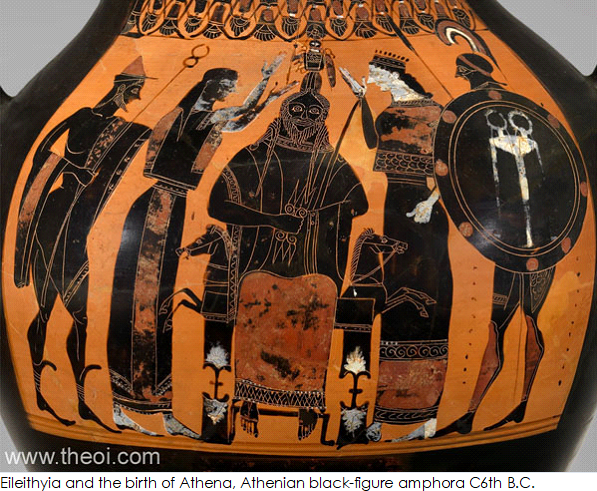Thanks for joining us for another Families Deity! We’re exploring deities that tie into families and family values, or who are important to the family unit or children in some way. This month, we are exploring the unfamiliar goddess, Eileithyia.
Who is Eileithyia?
Eileithyia (pronounced ee-lee-THEE-ah), meaning She who comes to the aid of women in the childbed, is a Greek Goddess and recorded as the third of six children by parents Zeus, King of all gods and his last wife Hera.
She was used by her mother to stay the births of her half-siblings, Artemis and Apollo and half-brother, Hercules.
Her counterpart in the Roman pantheon is Lucina.

Why is Eileithyia one of our Family Deities?
There are no surviving myths regarding her own birth story or how she became the Greek Goddess of Childbirth but it is suggested she has Minoan roots before being adopted into the Greek pantheon. Although, there are indications that her function as a divine help to birthing women has been unchanged.
There is a cave on Crete at Amnisos outside of Knossos, where Eileithyia has been worshiped, although there are shrines to her across Greece.
Women are thought to have called to Eileithyia as she was able to ease pains and control the speed of labour.
This ability was exploited by her mother, Hera, on two occasions. First, during the birth of Artemis and Apollo, whose father was Zeus; Hera prevented Eileithyia from hearing the twins’ mother, Leto’s, cries for help with the birth. Eileithyia was eventually told of the birth by another Goddess and went to assist.
The second time was the birth of Hercules, another of Zeus’ children and another child Hera was trying to prevent being born. This time Eileithyia was specifically asked by her mother to slow the birth and so sat outside the home where Alkmene laboured, with her arms and legs crossed, there by preventing the labour from progressing. Alkmene’s handmaid, Galanthias, saw what Eileithyia was doing and tricked her by announcing the baby had been born, causing Eileithyia to uncross her arms and legs when she leapt up and the labour continued naturally. Angered by the trick, Eileithyia turned Galanthias into a polecat and this is why the polecat is associated with the Goddess.
Honouring Eileithyia
Eileithyia’s cave is mentioned on the Odyssey and Homer names her as the Goddess of Childbirth in the Iliad. Her name is often used as a collective noun for those supporting a labouring woman.
Eileithyia Correspondences
The surviving information on the cult of Eileithyia is limited and the items listed below are suggestions:
Stalactites and stalagmites can be found, naturally occurring, in Eileithyia’s sacred cave on Crete and these appear to represent the dual actions of the goddess of advancing or staying labour.
Animals
Polecat
Peacock
Cow
Tools
Torch (flame)
Images
Caves
Offerings
There is little information about how Eileithyia is honoured but a tablet found within her cave on Crete mentions offerings of honey.
What are your experiences with this fascinating goddess? Pop over to our Facebook group and let us know.
